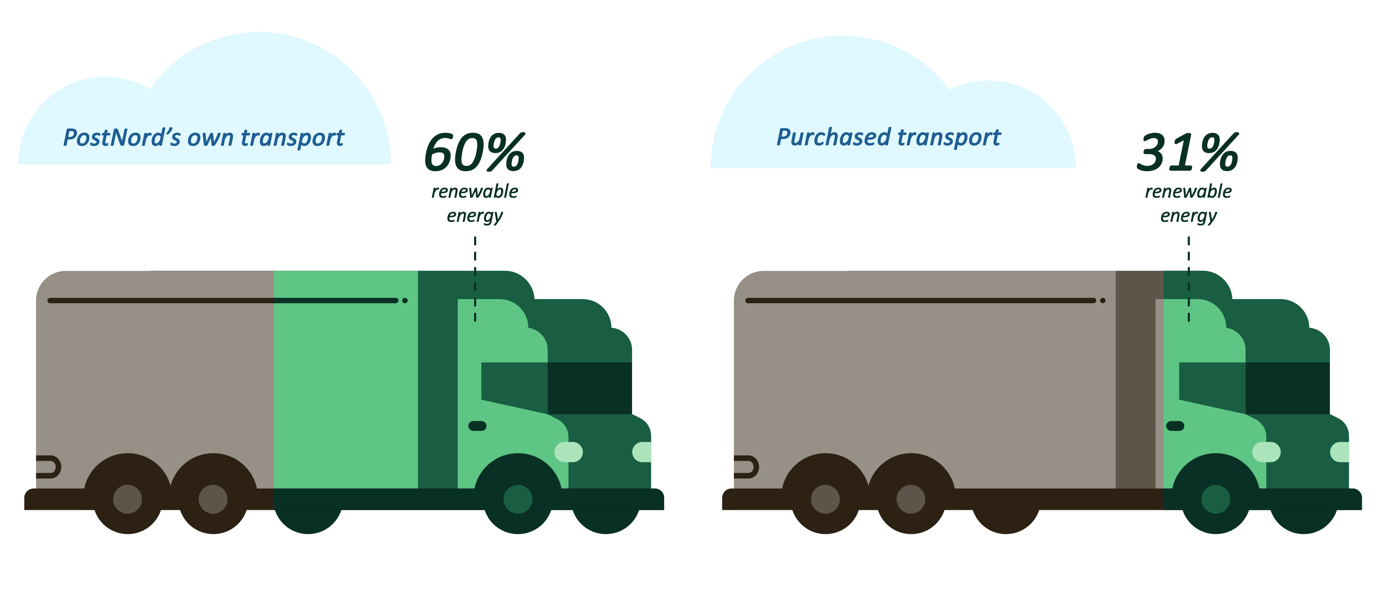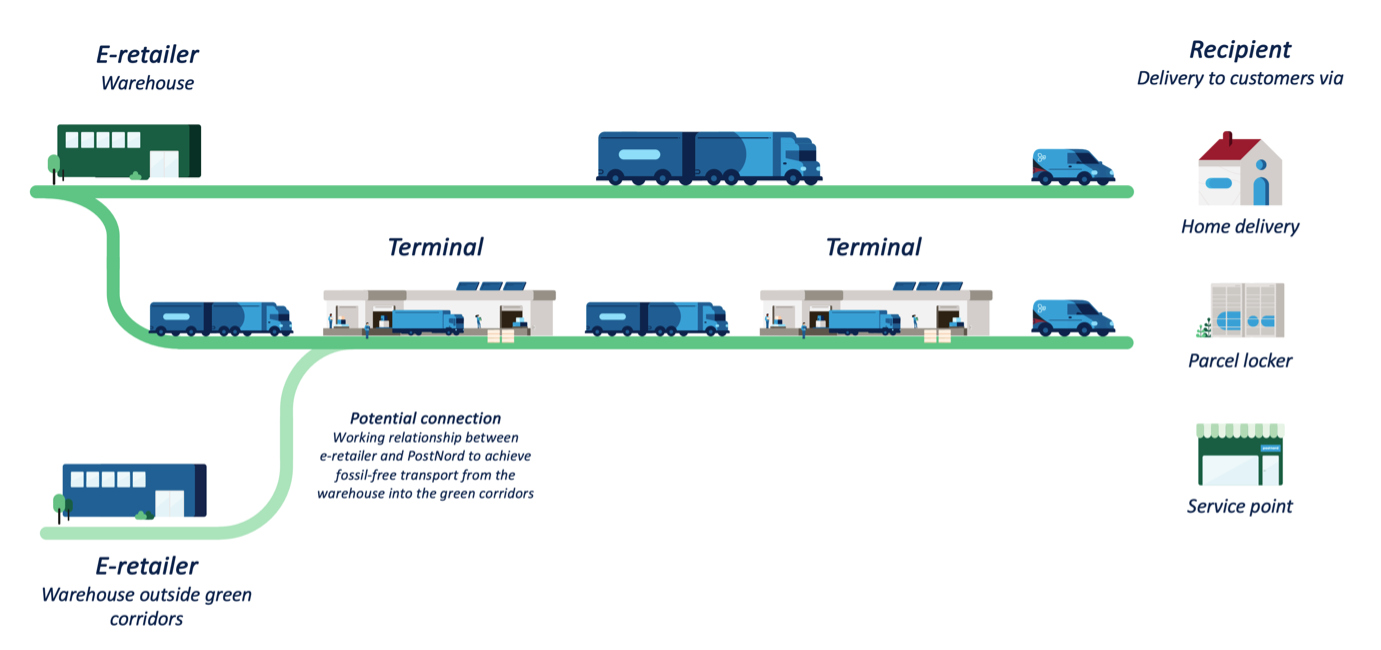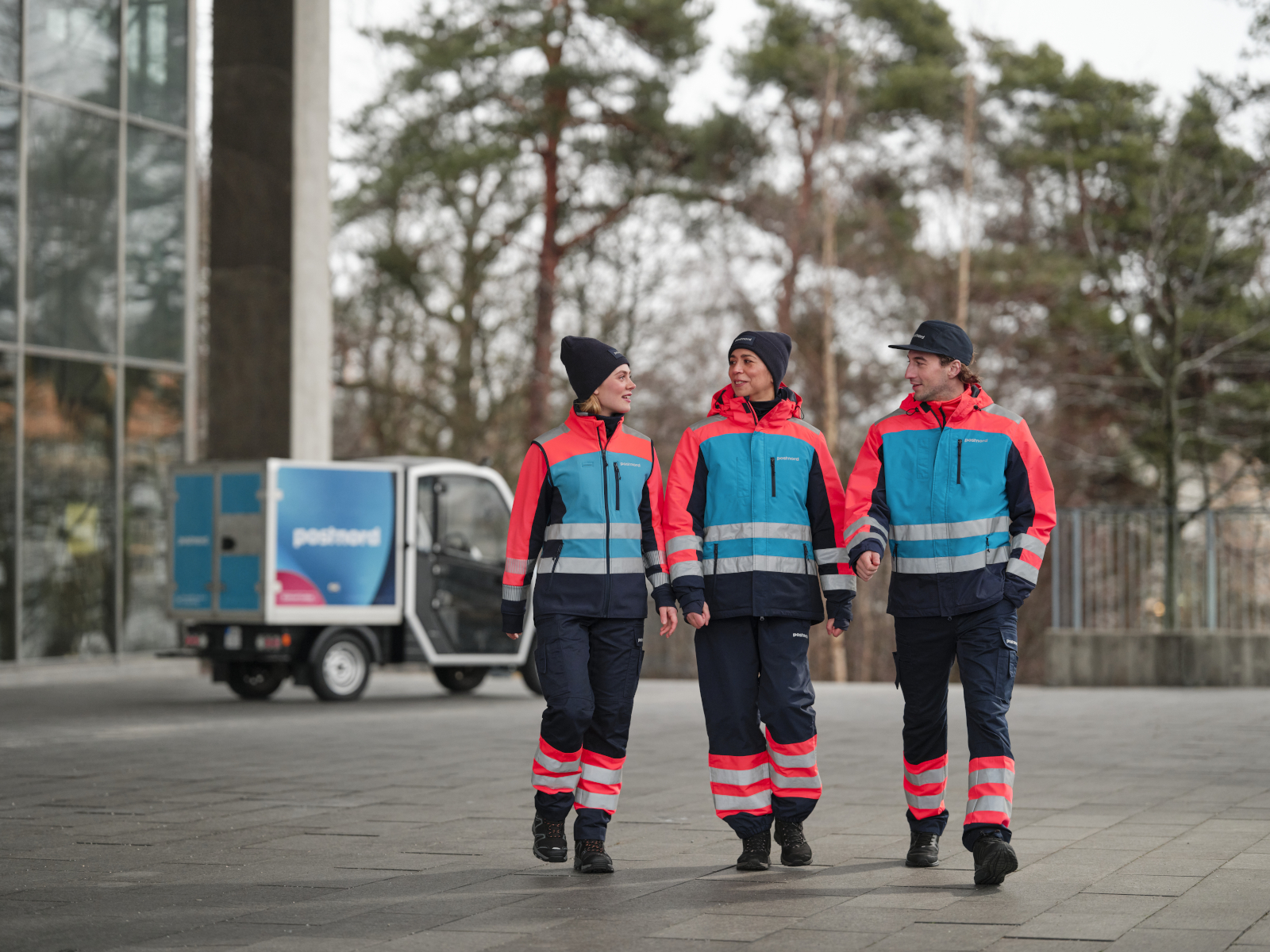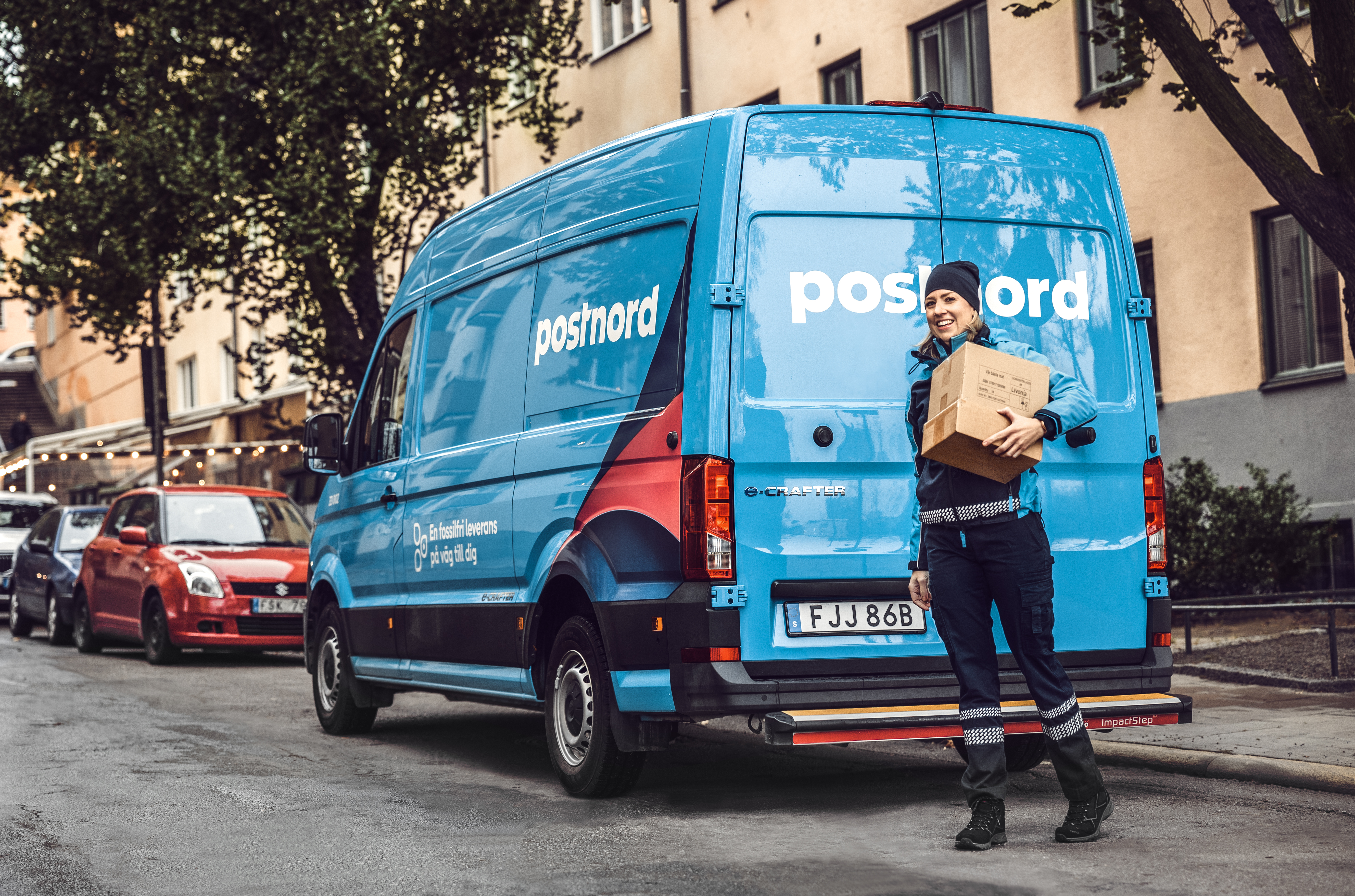Driving change: PostNord’s journey to a fossil-free transportation future
Climate change is one of the greatest challenges of our time. The transportation sector accounts for a major share of global greenhouse gas emissions. As a leading player in logistics in the Nordics, we are taking the lead in the industry's climate transition.
The Nordic transportation system remains fossil-fuel dependent. To meet the climate challenge, the entire transportation sector needs to switch to fossil-free fuels.
The challenges are many and tough, but there are also many opportunities. We can be a solution for other players – many customers have ambitious climate targets and are counting on PostNord to achieve them. Progress depends on partnerships, both inside and outside the transportation sector.
PostNord’s commitment
Road transportation accounts for around 60 percent of PostNord's climate impact in the value chain. That's why our climate agenda seeks primarily to optimize our logistics system and the vehicles that PostNord and our transportation providers operate on the roads of the Nordic region. Securing a Nordic infrastructure for fossil-free transport by 2030 will be costly and complex, but it is necessary and doable.

Conversion of vehicle fleet
PostNord is investing heavily in electrification of our vehicle fleet. Every market is gradually phasing in electric vehicles in line with local production. At year-end, PostNord had nearly 13,000 own vehicles, of which 13 percent were bicycles and mopeds, 75 percent were distribution vehicles and 12 percent were heavy goods vehicles (>3.5 tonnes). Overall, 29 percent of PostNord's vehicle fleet ran on electricity.
PostNord TPL have taken an important step towards electrification of heavy goods transportation. An all-electric heavy goods truck and trailer was placed in service transporting goods from the Bauhaus warehouse to stores in Norrköping and Linköping in Sweden.
The trial, a collaboration with Einride, was aimed at establishing an effective structure and functionality for this type of electric transportation. As things stand, electrification of heavy and long-distance transport is a challenging task. Vehicles should be affordable in terms of total cost, offer a good range and be rapidly and easily rechargeable, which requires a well-developed charging infrastructure. In view of these factors, biofuels are currently the best overall option for heavy goods transportation.
Emission-free last mile deliveries
PostNord operates electric vehicles for the last mile in all our markets. This is in line with our group-wide target to become emission-free in last-mile deliveries by 2027. In more than 13 cities from Umeå to Malmö, we operate fossil-free vehicles for the last mile.
Collaboration for change
PostNord is also working with players in other industries who, like us, are aiming to commercialize fossil-free heavy transport on a large scale, in line with the Paris Agreement. This cooperation is taking place within the framework of the Pathways Coalition. In addition to PostNord, the coalition includes E.ON, H&M Group, Scania, Siemens and Ericsson. Members of The Pathways Coalition are committed to its vision of achieving zero fossil emissions by no later than 2050.
Climate adaptation as a customer offering
The climate and customers cannot wait – more and more e-commerce customers are demanding fossil-free deliveries. In response to this demand, we are concentrating our climate transition in certain regions and parts of our network. By focusing on routes where we handle large parcel volumes, we can lower emissions and meet customers' needs cost-efficiently. Last year, we launched green corridors in Sweden and Norway. In Sweden, all transportation between PostNord’s parcel terminals in Stockholm, Gothenburg and Malmö is fossil-free. In 2023, green corridors will be available in 17 cities in Sweden.

Climate report to customers
Many customers ask for detailed information on emissions from transportation on their behalf. And so, we developed a tool for customer-specific climate reports. Reports are currently available for a number of services in Sweden and more are in the pipeline. Similar solutions exist or are being developed at PostNord in Finland, Norway and Denmark. The idea is to standardize them in order to have a single solution for the whole Group.
Nordic Swan ecolabel
By pursuing an ambitious climate agenda and offering sustainable delivery options, PostNord aims to be the obvious choice for e-commerce customers and consumers in the Nordic region. PostNord’s e-commerce logistics in Sweden have now been given the Nordic Swan Ecolabel. That is a first in the sector.
Next steps
We will continue to transform the fleet, focusing on vehicles and infrastructure for fossil-free transportation. For example, we aim to trial heavy electric vehicles for longer transports and are looking at the possibility of using rail transportation to a greater extent. The focus is on green corridors and other arrangements for fossil-free transport. The point is to meet customers' demands and wishes, while reducing PostNord's total climate impacting emissions. Our objective is to achieve closer collaboration with transportation providers in order to involve them in PostNord’s – and the sector’s – climate change transition.
Curious about delivering to the Nordics?
Reach out, and we’d be happy to share how our services can support your eCommerce growth.


